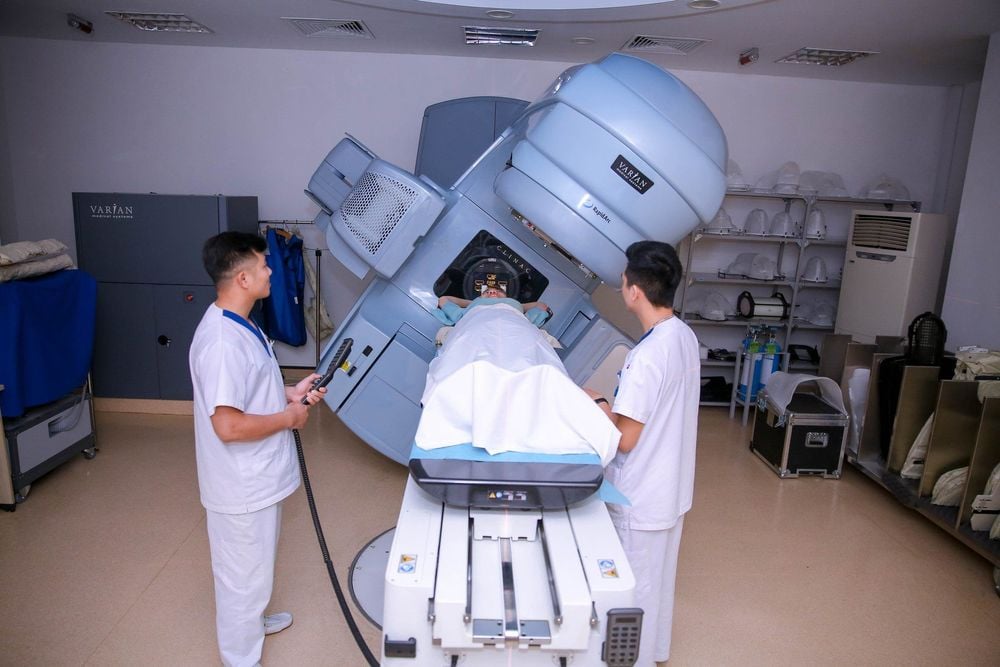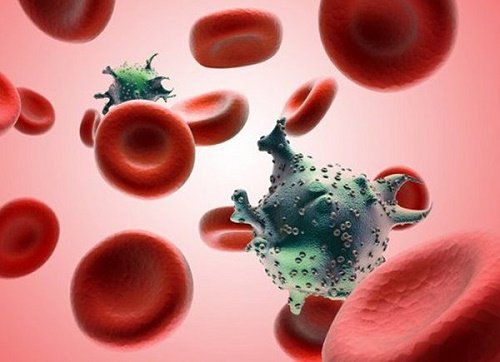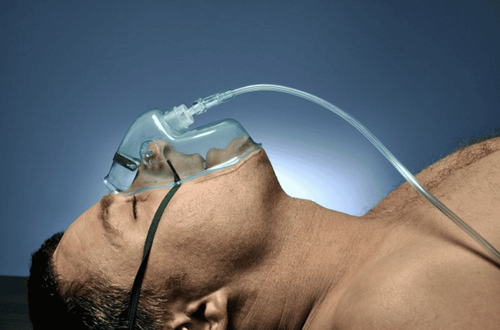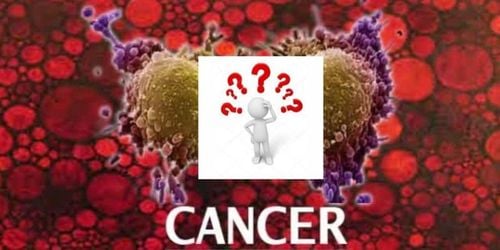This is an automatically translated article.
The article was professionally consulted by Specialist Doctor II Do Tuong Huan - Oncologist - Oncology Center - Vinmec Central Park International General Hospital.Curing cancer recurrence requires patients to be patient and follow the doctor's instructions. Treatments for recurrent cancer depend on the type of cancer and how far the malignant cells have spread.
1. What is cancer recurrence?
Cancer that comes back after treatment is gone is called recurrent cancer. This often leaves the patient in shock, anger, sadness, and fear. In addition, patients lost faith in previous cancer treatments and doubted the competence of doctors.However, cancer recurrence is unpredictable and the team of doctors tried their best. It is important that patients deal with the disease vigorously, as they did before with the primary cancer. Treating recurrent cancer sometimes becomes easier because the patient has had previous cancer treatment experience and has overcome the disease. In addition, treatments may be more advanced and more selective than before. New drugs or therapies help improve treatment effectiveness and better control side effects.
2. Causes of cancer recurrence
Recurrence cancer originates from malignant cells left behind because the first treatment failed to remove or destroy it completely. This does not mean that the treatment went wrong, but that a small number of cancer cells survived all treatments and were too small to be detected in subsequent follow-up tests. . Over time, these cells develop into malignant tumors and begin to cause symptoms.Sometimes, another type of cancer occurs that is completely unrelated to the original cancer. This phenomenon is called the second primary cancer
3. Diagnosis of recurrent cancer
After treatment for the primary cancer, the patient will be regularly monitored by the doctor, including a clinical examination, physical examination, and related tests.If cancer recurrence is suspected, the patient needs to do specialized tests to confirm the diagnosis. These tests are usually laboratory tests, imaging tests, or biopsies. From these tests, the doctor will conclude whether the patient has a recurrence of the cancer, to what extent, and consider the course of treatment.
4. Treatment options for recurrent cancer

Đội ngũ bác sĩ sẽ cùng trao đổi với bạn để lựa chọn phương án chữa ung thư tái phát.
Personal goals; Cancer type, size and location of recurrence; The patient's overall health; How effective is the initial treatment plan; Side effects encountered from the initial course of treatment; Time from end of treatment to relapse.
5. Facing Cancer Recurrence
Patients diagnosed with recurrent cancer often experience shock, anger, anxiety, skepticism, fear, grief, mental breakdown, and even loss of behavioral control. These emotions are very common with patients facing this difficult experience.In order for the treatment of recurrent cancer to be highly effective and easily overcome the disease, patients should take advantage and prepare well the following:
Cultivate information and knowledge about cancer, help patients reduce fears and anxieties related to the unknown; Mentally prepare to deal with any eventuality; Learn more about cancer treatments and their side effects; Learn ways to limit and prevent cancer from coming back; Do simple exercises that help reduce stress, such as gentle exercise, meditation, yoga, playing sports or spending time with family and friends; Talk to your doctor to apply palliative care therapies to improve quality of life, support disease coping; Build a balanced, reasonable diet; Share your symptoms with family, friends and doctors to get the support you need.
6. How to prevent cancer from coming back

Chế độ dinh dưỡng lành mạnh và tập thể dục giúp ngăn ngừa ung thư
Nutritional factors that increase the risk of cancer can also increase the rate of cancer recurrence after treatment. For example, the risk of breast cancer recurrence is often higher in women who are obese and eat less fruits and vegetables.
6.2. Vitamin supplements Blood tests help determine the amount of certain vitamins in the body that are deficient. In case a vitamin supplement is needed, the doctor will prescribe an appropriate supplement to improve the vitamin content to the required level. Patients should only take vitamins when prescribed by their doctor.
6.3. Be physically active Some studies show the benefits of physical activity in prolonging the life of patients treated for recurrent cancer. However, being physically active may not be as effective in preventing cancer recurrence or slowing its progression.
In addition, regular physical exercise will help patients cope better with the disease, help reduce anxiety, depression, improve mood, reduce symptoms of fatigue, nausea, diarrhea and reduce pain . Patients should talk to their treating physician about an exercise plan and types of exercise that are best suited to their health condition.
6.4. See your doctor as soon as you find any health problems First, patients need to talk to their doctor and make a list of common symptoms that warn of cancer recurrence. If any abnormal signs are detected, especially those listed in the list, the patient needs to be re-examined immediately.
In addition, it should be noted to control other diseases that, although not related to cancer, can affect general health, such as cardiovascular disease, diabetes, dyslipidemia.
6.5. Always be optimistic in the face of disease Many cancer patients, even though they have been cured, are always worried about the possibility of cancer recurrence and this inadvertently becomes a fear that greatly affects their quality of life. daily.
If you have such a situation, talk to your doctor to get the help you need, suggest ways to manage your emotions, and help you live a full life after cancer treatment. In addition, patients should confide in relatives and friends to relieve stress.
Although the treatment of recurrent cancer is very difficult, the patient must be really patient and make use of all available resources to reverse the disease. Try to always keep an optimistic spirit, build a healthy lifestyle to maintain health and enhance the effectiveness of treatment.
Specialist Doctor II Do Tuong Huan has 20 years of experience in the examination, diagnosis and surgical treatment and chemotherapy of cancer pathologies. Dr. Huan used to work for a long time at Ho Chi Minh City Oncology Hospital from 1999 to 2017 and now works at Vinmec Central Park International General Hospital from March 2017.
Please dial HOTLINE for more information or register for an appointment HERE. Download MyVinmec app to make appointments faster and to manage your bookings easily.
References: cancer.net, mayoclinic.org, cancer.gov













